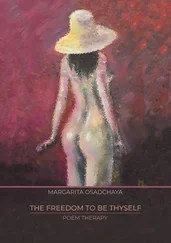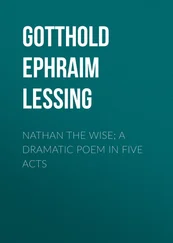Than to be an old man's solace,
Prop to stay him when be totters,
Hand to aid him when he trembles,
Arm to guide him when he falters,
Strength to give him when he weakens;
Better be the whiting's sister
And the friend of perch and salmon,
Than an old man's slave and darling."
Ending thus she left her mother,
Straightway hastened to the mountain?
To the store-house on the summit,
Opened there the box the largest,
From the box six lids she lifted,
Found therein six golden girdles,
Silken dresses seven in number.
Choosing such as pleased her fancy,
She adorned herself as bidden,
Robed herself to look her fairest,
Gold upon her throbbing temples,
In her hair the shining silver,
On her shoulders purple ribbons,
Band of blue around her forehead,
Golden cross, and rings, and jewels,
Fitting ornaments to beauty.
Now she leaves her many treasures,
Leaves the store-house on the mountain,
Filled with gold and silver trinkets,
Wanders over field and meadow,
Over stone-fields waste and barren,
Wanders on through fen and forest,
Through the forest vast and cheerless,
Wanders hither, wanders thither,
Singing careless as she wanders,
This her mournful song and echo:
"Woe is me, my life hard-fated!
Woe to Aino, broken-hearted!
Torture racks my heart and temples,
Yet the sting would not be deeper,
Nor the pain and anguish greater,
If beneath this weight of sorrow,
In my saddened heart's dejection,
I should yield my life forever,
Now unhappy, I should perish!
Lo! the time has come for Aino
From this cruel world to hasten,
To the kingdom of Tuoni,
To the realm of the departed,
To the isle of the hereafter.
Weep no more for me, O Father,
Mother dear, withhold thy censure,
Lovely sister, dry thine eyelids,
Do not mourn me, dearest brother,
When I sink beneath the sea-foam,
Make my home in salmon-grottoes,
Make my bed in crystal waters,
Water-ferns my couch and pillow."
All day long poor Aino wandered,
All the next day, sad and weary,
So the third from morn till evening,
Till the cruel night enwrapped her,
As she reached the sandy margin,
Reached the cold and dismal sea-shore,
Sat upon the rock of sorrow,
Sat alone in cold and darkness,
Listened only to the music
Of the winds and rolling billows,
Singing all the dirge of Aino.
All that night the weary maiden
Wept and wandered on the border
Through the sand and sea-washed pebbles.
As the day dawns, looking round her,
She beholds three water-maidens,
On a headland jutting seaward,
Water-maidens four in number,
Sitting on the wave-lashed ledges,
Swimming now upon the billows,
Now upon the rocks reposing.
Quick the weeping maiden, Aino,
Hastens there to join the mermaids,
Fairy maidens of the waters.
Weeping Aino, now disrobing,
Lays aside with care her garments,
Hangs her silk robes on the alders,
Drops her gold-cross on the sea-shore,
On the aspen hangs her ribbons,
On the rocks her silken stockings,
On the grass her shoes of deer-skin,
In the sand her shining necklace,
With her rings and other jewels.
Out at sea a goodly distance,
Stood a rock of rainbow colors,
Glittering in silver sunlight.
Toward it springs the hapless maiden,
Thither swims the lovely Aino,
Up the standing-stone has clambered,
Wishing there to rest a moment,
Rest upon the rock of beauty;
When upon a sudden swaying
To and fro among the billows,
With a crash and roar of waters
Falls the stone of many colors,
Falls upon the very bottom
Of the deep and boundless blue-sea.
With the stone of rainbow colors,
Falls the weeping maiden, Aino,
Clinging to its craggy edges,
Sinking far below the surface,
To the bottom of the blue-sea.
Thus the weeping maiden vanished.
Thus poor Aino sank and perished,
Singing as the stone descended,
Chanting thus as she departed:
Once to swim I sought the sea-side,
There to sport among the billows;
With the stone or many colors
Sank poor Aino to the bottom
Of the deep and boundless blue-sea,
Like a pretty son-bird. perished.
Never come a-fishing, father,
To the borders of these waters,
Never during all thy life-time,
As thou lovest daughter Aino.
"Mother dear, I sought the sea-side,
There to sport among the billows;
With the stone of many colors,
Sank poor Aino to the bottom
Of the deep and boundless blue-sea,
Like a pretty song-bird perished.
Never mix thy bread, dear mother,
With the blue-sea's foam and waters,
Never during all thy life-time,
As thou lovest daughter Aino.
Brother dear, I sought the sea-side,
There to sport among the billows;
With the stone of many colors
Sank poor Aino to the bottom
Of the deep and boundless blue-sea,
Like a pretty song-bird perished.
Never bring thy prancing war-horse,
Never bring thy royal racer,
Never bring thy steeds to water,
To the borders of the blue-sea,
Never during all thy life-time,
As thou lovest sister Aino.
"Sister dear, I sought the sea-side,
There to sport among the billows;
With the stone of many colors
Sank poor Aino to the bottom
Of the deep and boundless blue-sea,
Like a pretty song-bird perished.
Never come to lave thine eyelids
In this rolling wave and sea-foam,
Never during all thy life-time,
As thou lovest sister Aino.
All the waters in the blue-sea
Shall be blood of Aino's body;
All the fish that swim these waters
Shall be Aino's flesh forever;
All the willows on the sea-side
Shall be Aino's ribs hereafter;
All the sea-grass on the margin
Will have grown from Aino's tresses."
Thus at last the maiden vanished,
Thus the lovely Aino perished.
Who will tell the cruel story,
Who will bear the evil tidings
To the cottage of her mother,
Once the home of lovely Aino?
Will the bear repeat the story,
Tell the tidings to her mother?
Nay, the bear must not be herald,
He would slay the herds of cattle.
Who then tell the cruel story,
Who will bear the evil tidings
To the cottage of her father,
Once the home of lovely Aino?
Shall the wolf repeat the story,
Tell the sad news to her father?
Nay, the wolf must not be herald,
He would eat the gentle lambkins.
Who then tell the cruel story,
Who will bear the evil tidings.
To the cottage of her sister?
'Will the fox repeat the story
Tell the tidings to her sister?
Nay, the fox must not be herald,
He would eat the ducks and chickens.
Who then tell the cruel story,
Who will bear the evil tidings
To the cottage of her brother,
Once the home of lovely Aino?
Shall the hare repeat the story,
Bear the sad news to her brother?
Yea, the hare shall be the herald,
Tell to all the cruel story.
Thus the harmless hare makes answer:
"I will bear the evil tidings
To the former home of Aino,
Tell the story to her kindred."
Swiftly flew the long-eared herald,
Like the winds be hastened onward,
Galloped swift as flight of eagles;
Neck awry he bounded forward
Till he gained the wished-for cottage,
Once the home of lovely Aino.
Silent was the home, and vacant;
Читать дальше












